Essential Bloom
69.00 zł
Essential Calm
69.00 zł
Essential Citrus
69.00 zł
Essential Forest
69.00 zł
 Essential OilNOVELTY!
Essential OilNOVELTY!
 CBD Oils Full Spectrum
CBD Oils Full Spectrum
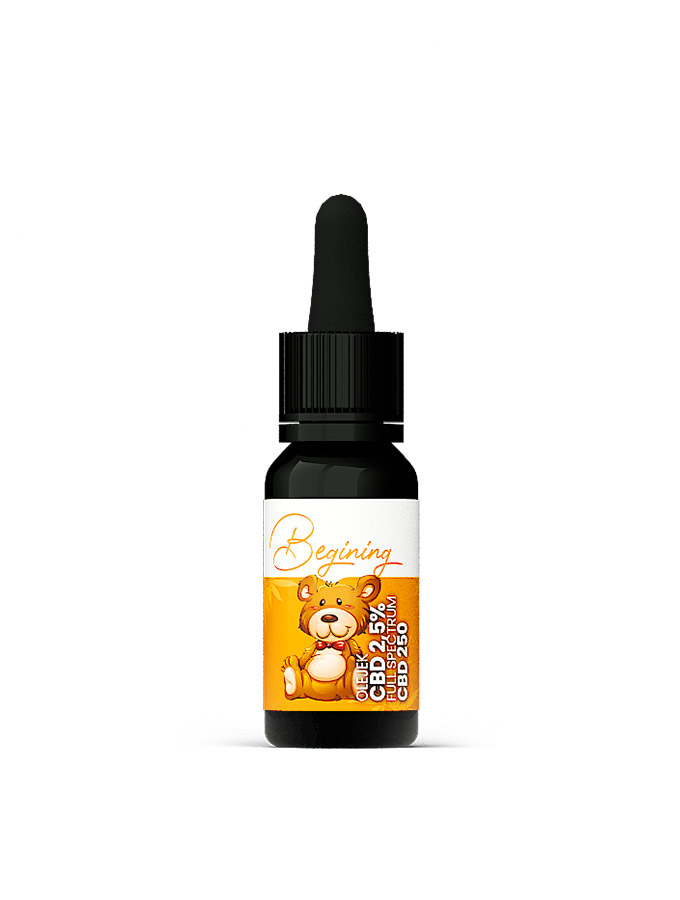 CBD oil 2.5% Full Spectrum “BEGINNING”
CBD oil 2.5% Full Spectrum “BEGINNING”
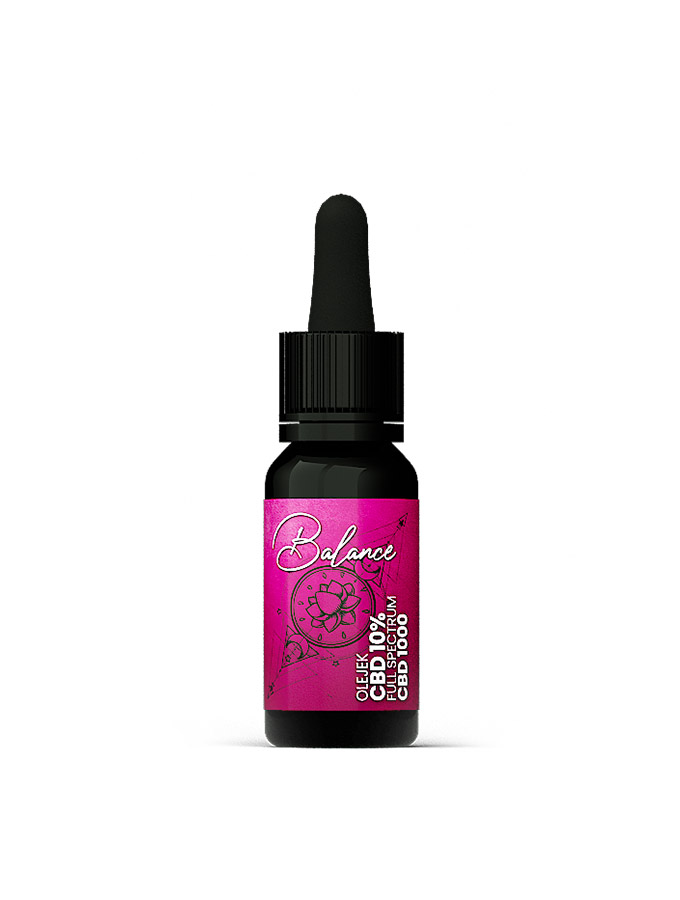 CBD Oil 10% Full Spectrum “BALANCE”
CBD Oil 10% Full Spectrum “BALANCE”
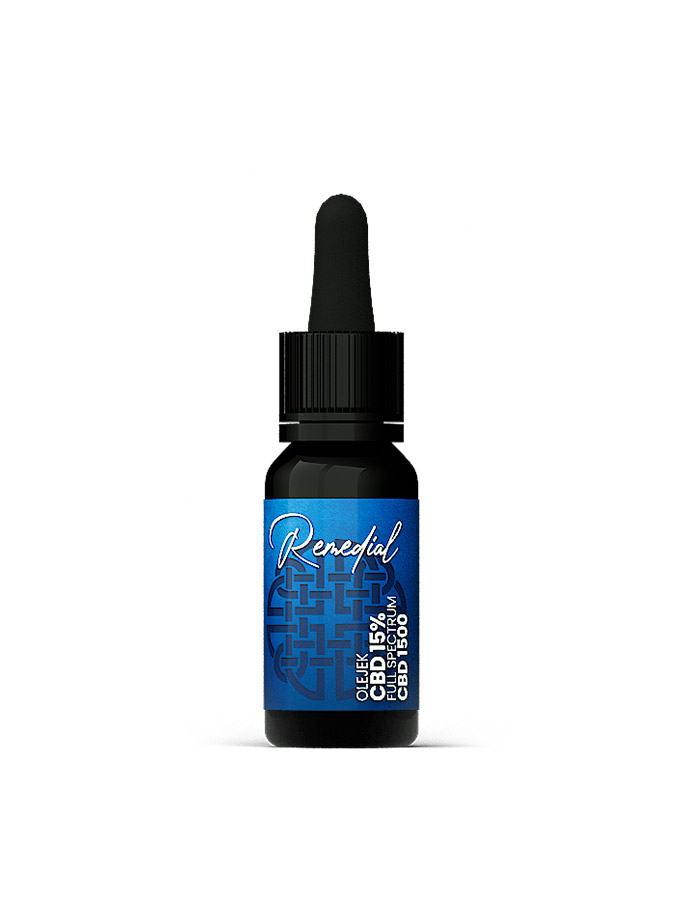 CBD oil 15% Full Spectrum “REMEDIAL”
CBD oil 15% Full Spectrum “REMEDIAL”
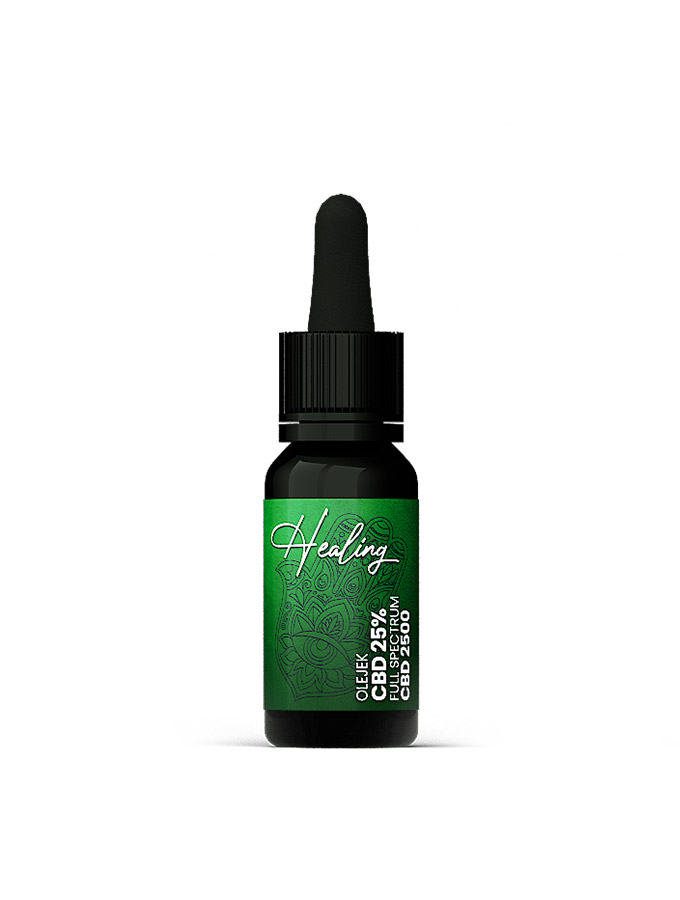 CBD oil 25% Full Spectrum “HEALING”
299.00 zł
CBD oil 25% Full Spectrum “HEALING”
299.00 zł
 Body Oil CBD 1500 Illuminated, Smoothed and Moisturized Skin
Body Oil CBD 1500 Illuminated, Smoothed and Moisturized Skin
 Body Oil Flowers CBD 750 250ml
119.00 zł
Body Oil Flowers CBD 750 250ml
119.00 zł
 Body Oil Herbs CBD 750 250ml
Body Oil Herbs CBD 750 250ml
 Body Oil CBD 750 250ml
119.00 zł
Body Oil CBD 750 250ml
119.00 zł
 CBD Full Spectrum Creams
CBD Full Spectrum Creams
 Face Day Cream CBD 200 Radiant and Moisturized Skin
Face Day Cream CBD 200 Radiant and Moisturized Skin
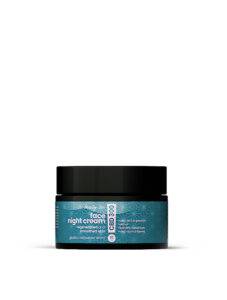 Face Night Cream CBD 300 Regenerated and Smoothed Skin
Face Night Cream CBD 300 Regenerated and Smoothed Skin
 CBD Full Spectrum Ointments
CBD Full Spectrum Ointments
 Balm CBD 750 Relief and Regeneration for Dry Skin
Balm CBD 750 Relief and Regeneration for Dry Skin
CBD Therapeutic Balm 750 brilliant regenerates and moisturizes dry and cracked skin as a result of individual predispositions and external factors.
 Salve CBD 1500 restoring the vitality of your body
Salve CBD 1500 restoring the vitality of your body
The unique action of Salve CBD 1500 ointment is based on the combination of the broad action of full spectrum CBD extract and herbs with powerful and documented power.
 CBD Full Spectrum Serum
CBD Full Spectrum Serum
 Face Serum CBD 600 Firmed and Revitalized Skin
Face Serum CBD 600 Firmed and Revitalized Skin
Nourishing face serum with a high content of full spectrum CBD extract, echinacea stem cells, collagen and elastin, and precious prickly pear oil for all skin types.
 Skin oil CBD 300 Acne and Scars Removal
Skin oil CBD 300 Acne and Scars Removal
Skin Oil CBD 300 owes its effectiveness to a formula containing precious full spectrum CBD extract, omega acids, arnica and lavender herbs, as well as vitamins A and E.
 CBD Full Spectrum Lipsticks
CBD Full Spectrum Lipsticks
 Care Lipstick - Bee and CBD
Care Lipstick - Bee and CBD
It is a daily, natural and effective care for your lips. Note! The lipstick is exceptionally efficient due to the strong concentration of ingredients.
The exceptional effectiveness of CBD 50 lipstick is guaranteed by:
+ CBD full spectrum oil
+ Hemp extract (macerate)
+ Beeswax and lanolin
+ Cocoa butter
+ Coconut oil
+ Vegetable glycerin
+ Orange and neroli essential oils
 Beauty line
Beauty line
 Essential oils blend Lemongrass
69.00 zł
Essential oils blend Lemongrass
69.00 zł
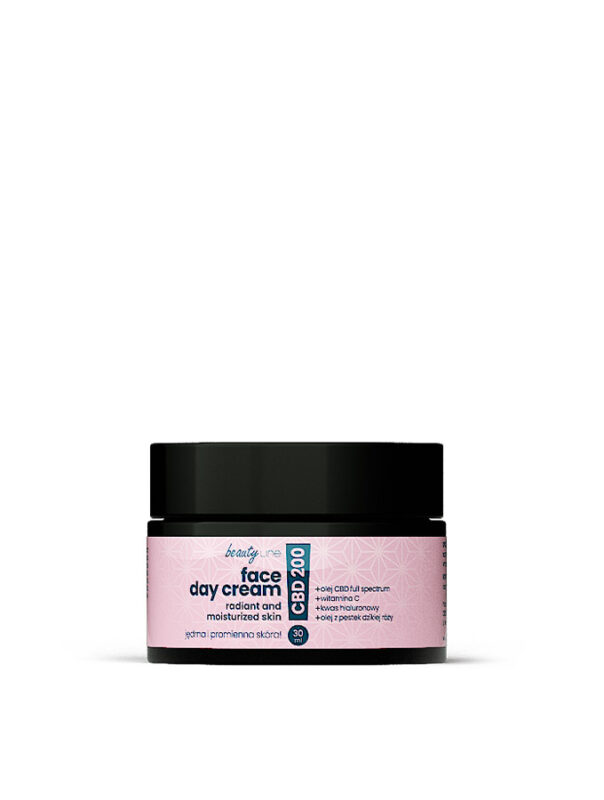 Face Day Cream CBD 200 Radiant and Moisturized Skin
Face Day Cream CBD 200 Radiant and Moisturized Skin
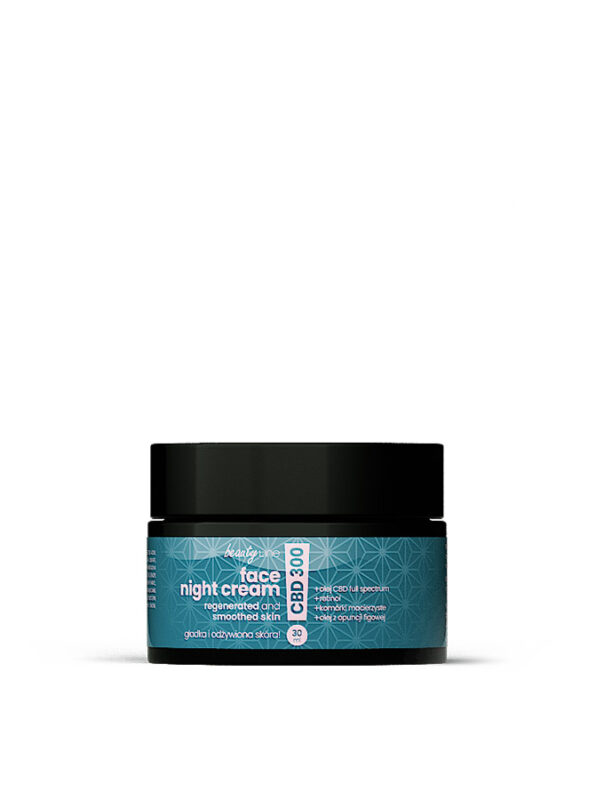 Face Night Cream CBD 300 Regenerated and Smoothed Skin
Face Night Cream CBD 300 Regenerated and Smoothed Skin
 Face Serum CBD 600 Firmed and Revitalized Skin
Face Serum CBD 600 Firmed and Revitalized Skin
 Body Oil CBD 1500 Illuminated, Smoothed and Moisturized Skin
Body Oil CBD 1500 Illuminated, Smoothed and Moisturized Skin
 Body Oil CBD 750 250ml
119.00 zł
Body Oil CBD 750 250ml
119.00 zł
 Body Oil Herbs CBD 750 250ml
Body Oil Herbs CBD 750 250ml
 Body Oil Flowers CBD 750 250ml
119.00 zł
Body Oil Flowers CBD 750 250ml
119.00 zł
 Therapy line
Therapy line
 Cosmetics for riders
Cosmetics for riders
 Sets and promotions
Sets and promotions
Previous lowest price was 209.00 zł.
Previous lowest price was 239.00 zł.
Previous lowest price was 429.00 zł.

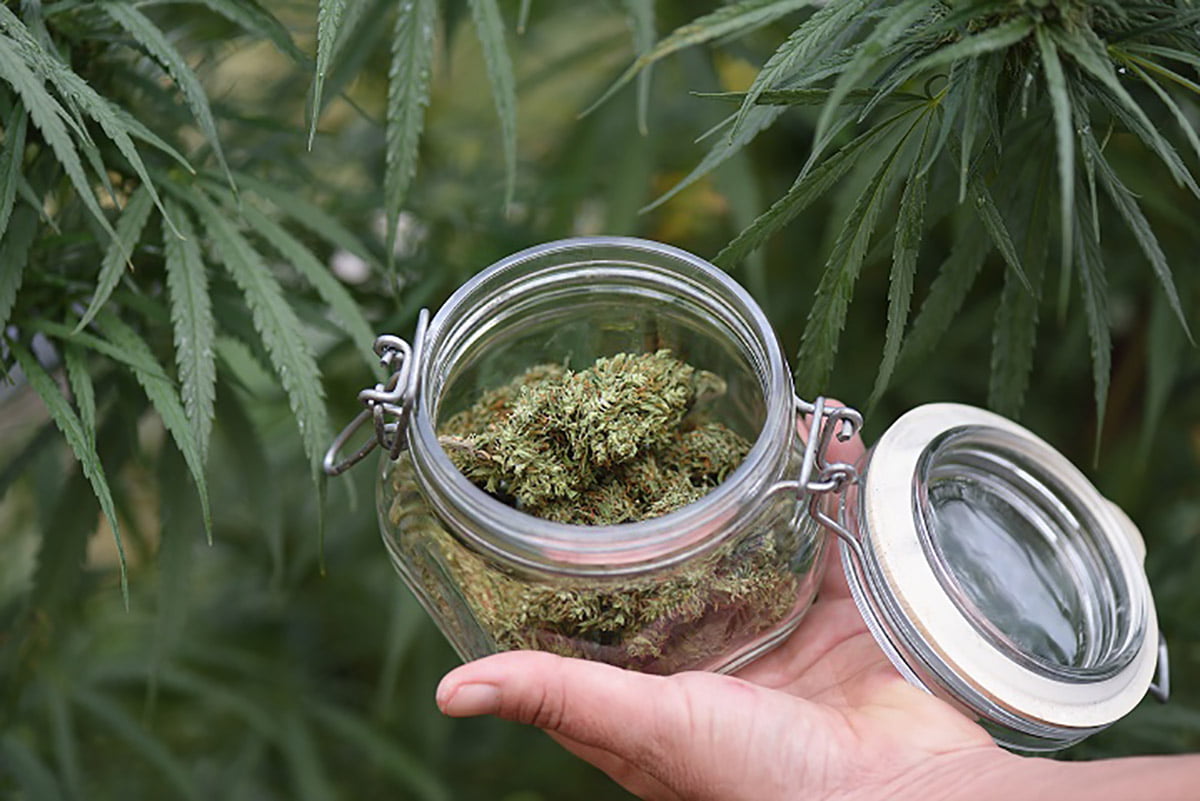
CBG, also known as cannabigerol, is another of over 120 cannabinoids identified in the cannabis plant.
It has no psychoactive properties and its potential for therapeutic applications is currently being researched.
This is a very interesting molecule because it is the precursor to the most popular THC and CBD. It is created as one of the first molecules in the form of CBGA and occurs in the highest concentrations during the development of hemp plants. The plant's own enzymes, over time, act on CBGA and break it down into THCA, CBDA and CBCA. However, if we precipitate the acid from CBGA (through the aforementioned exposure to light / heat / steam), we will get CBG.
Most cannabis varieties contain very low levels of CBG – below 1%. This does not mean that this cannabinoid is not valuable, quite the opposite. It is able to increase dopamine levels, which improves sleep, mood and appetite. It also inhibits GABA neurotransmission in the brain, which reduces overall muscle tension and tension. It inhibits serotonin receptors and thus reduces symptoms of anxiety and depression. In addition, CBG is currently recognized as particularly effective in the following diseases:
Cancer – according to recent studies, it can be used as an anti-cancer agent because it has the potential to block receptors responsible for the growth of cancer cells. Scientists report inhibition of colon cancer cell growth in mice given CBG, so it is a new alternative in the treatment of cancer patients. It is also effective as a cytotoxic agent acting on epithelial cancer and breast cancer in humans.
Glaucoma – CBG has proven to be incredibly effective in lowering the intraocular pressure associated with glaucoma. Scientists attribute this phenomenon to the fact that endocannabinoid receptors are highly concentrated in the structures of the eye.
MRSA – Studies conducted in Europe revealed the antibiotic properties of CBG when applied topically to patients suffering from MRSA infection. (MRSA is a strain of Staphylococcus aureus that is resistant to methicillin, which is almost all antibiotics)
In addition to the above diseases, CBG shows potential as an anti-inflammatory agent for nonspecific bowel disease, slows down the degeneration of nerve cells, stimulates appetite, and improves and regulates bladder function.






 Essential OilNOVELTY!
Essential OilNOVELTY! CBD Oils Full Spectrum
CBD Oils Full Spectrum CBD oil 2.5% Full Spectrum “BEGINNING”
CBD oil 2.5% Full Spectrum “BEGINNING”
 CBD Oil 10% Full Spectrum “BALANCE”
CBD Oil 10% Full Spectrum “BALANCE”
 CBD oil 15% Full Spectrum “REMEDIAL”
CBD oil 15% Full Spectrum “REMEDIAL”
 CBD oil 25% Full Spectrum “HEALING”
299.00 zł
CBD oil 25% Full Spectrum “HEALING”
299.00 zł
 Body Oil CBD 1500 Illuminated, Smoothed and Moisturized Skin
Body Oil CBD 1500 Illuminated, Smoothed and Moisturized Skin
 Body Oil Flowers CBD 750 250ml
119.00 zł
Body Oil Flowers CBD 750 250ml
119.00 zł
 Body Oil Herbs CBD 750 250ml
Body Oil Herbs CBD 750 250ml
 Body Oil CBD 750 250ml
119.00 zł
Body Oil CBD 750 250ml
119.00 zł
 CBD Full Spectrum Creams
CBD Full Spectrum Creams Face Day Cream CBD 200 Radiant and Moisturized Skin
Face Day Cream CBD 200 Radiant and Moisturized Skin
 Face Night Cream CBD 300 Regenerated and Smoothed Skin
Face Night Cream CBD 300 Regenerated and Smoothed Skin
 CBD Full Spectrum Ointments
CBD Full Spectrum Ointments Balm CBD 750 Relief and Regeneration for Dry Skin
Balm CBD 750 Relief and Regeneration for Dry Skin
CBD Therapeutic Balm 750 brilliant regenerates and moisturizes dry and cracked skin as a result of individual predispositions and external factors.
 Salve CBD 1500 restoring the vitality of your body
Salve CBD 1500 restoring the vitality of your body
The unique action of Salve CBD 1500 ointment is based on the combination of the broad action of full spectrum CBD extract and herbs with powerful and documented power.
 CBD Full Spectrum Serum
CBD Full Spectrum Serum Face Serum CBD 600 Firmed and Revitalized Skin
Face Serum CBD 600 Firmed and Revitalized Skin
Nourishing face serum with a high content of full spectrum CBD extract, echinacea stem cells, collagen and elastin, and precious prickly pear oil for all skin types.
 Skin oil CBD 300 Acne and Scars Removal
Skin oil CBD 300 Acne and Scars Removal
Skin Oil CBD 300 owes its effectiveness to a formula containing precious full spectrum CBD extract, omega acids, arnica and lavender herbs, as well as vitamins A and E.
 CBD Full Spectrum Lipsticks
CBD Full Spectrum Lipsticks Care Lipstick - Bee and CBD
Care Lipstick - Bee and CBD
It is a daily, natural and effective care for your lips. Note! The lipstick is exceptionally efficient due to the strong concentration of ingredients.
The exceptional effectiveness of CBD 50 lipstick is guaranteed by:
+ CBD full spectrum oil
+ Hemp extract (macerate)
+ Beeswax and lanolin
+ Cocoa butter
+ Coconut oil
+ Vegetable glycerin
+ Orange and neroli essential oils
 Beauty line
Beauty line Essential oils blend Lemongrass
69.00 zł
Essential oils blend Lemongrass
69.00 zł
 Face Day Cream CBD 200 Radiant and Moisturized Skin
Face Day Cream CBD 200 Radiant and Moisturized Skin
 Face Night Cream CBD 300 Regenerated and Smoothed Skin
Face Night Cream CBD 300 Regenerated and Smoothed Skin
 Face Serum CBD 600 Firmed and Revitalized Skin
Face Serum CBD 600 Firmed and Revitalized Skin
 Body Oil CBD 1500 Illuminated, Smoothed and Moisturized Skin
Body Oil CBD 1500 Illuminated, Smoothed and Moisturized Skin
 Body Oil CBD 750 250ml
119.00 zł
Body Oil CBD 750 250ml
119.00 zł
 Body Oil Herbs CBD 750 250ml
Body Oil Herbs CBD 750 250ml
 Body Oil Flowers CBD 750 250ml
119.00 zł
Body Oil Flowers CBD 750 250ml
119.00 zł
 Therapy line
Therapy line Cosmetics for riders
Cosmetics for riders Sets and promotions
Sets and promotionsPrevious lowest price was 209.00 zł.
Previous lowest price was 239.00 zł.
Previous lowest price was 429.00 zł.